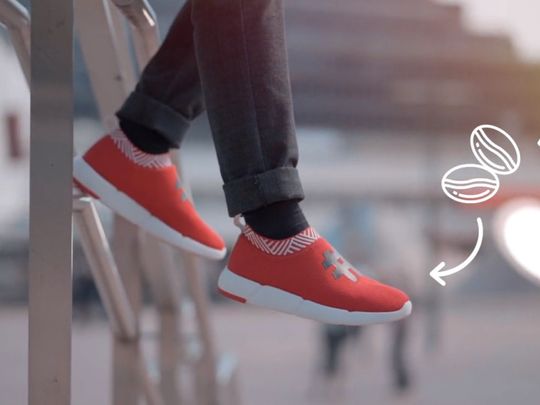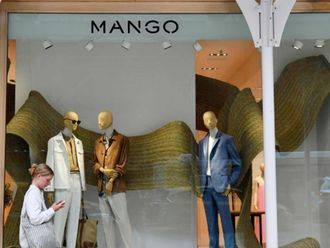
Dubai: Love coffee and sneakers? Here is how two entrepreneurs combined the two and they did it for a better environment.
Vietnamese duo Son Chu and Jesse Tran, are sneaker enthusiasts based in Finland, who found a unique way to combat food and plastic waste. The duo decided to make sneakers out of recycled plastic as well as coffee waste.
Their brand, Rens, uses material made out of coffee grounds and plastic waste that is suitable for footwear.
According to a report by the World Economic Forum, a pair of their Rens sneakers weighs 460g and out of that, 300g is coffee. The equivalent of six plastic bottles is also used in each pair.
The product is promoted on Kickstarter, a popular crowdfunding website and it has surpassed its initial goal. The goal amount was set at $19,000 (Dh69,789) and it has currently reached over $235,500 (Dh865,052).
The business has already attracted customers in 57 countries. The company is about to start catering to them as their online campaign was successful.
The coffee collection and shoe-making is currently done in China. However, the report stated that the founders have hopes to move manufacturing to Vietnam, where they originally come from.
In the promotional video, the sneakers are shown to be 100 per cent water resistant. Also, coffee grounds have odour eliminating properties so the shoes help fight foul smell.
The material is said to be breathable, suitable for athletics and vegan friendly.
Not just sneakers
Last year, a Berlin-based start-up, Kaffeeform used recyclable coffee grounds to create reusable coffee cups. German designer Julian Lechner combined used coffee grounds with natural glues to create a new material that he created after experimenting for years.
Lechner collects leftover coffee grounds from his local cafes in Berlin. He combines these with natural glues and particles of wood from sustainable sources to produce a liquid that can be injection moulded to create usable objects.
Once set into the required shape, the material is hard and waterproof enough to withstand cleaning in a dishwasher, according to the designer.
Food waste used in production
It’s not the first time food waste has been incorporated into production of clothing items. Orange peels, potato waste, grapes and residue from flax, pineapples, bananas and sugar cane farming have been used to make clothing materials.
Using coffee waste would have a significant impact on the road to combating food waste. Every day more than 2 billion cups of coffee are consumed across the globe. Most of the coffee grounds used to make those cups are thrown away, with six million tonnes sent to landfill every year, stated a World Economic Forum report.
The attitude of the clothing industry is slowly changing. More and more brands are looking to incorporate sustainable materials in their production. Popular brands such as Zara and H&M have introduced lines which use such materials.












